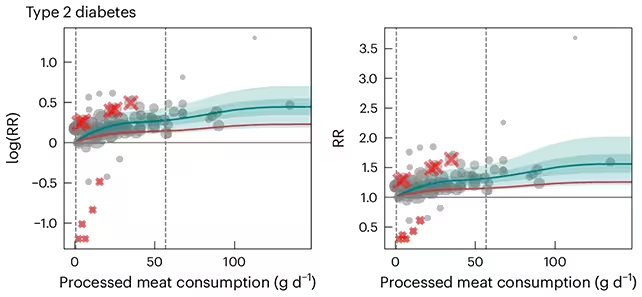4 Minutes
Extensive Research Unveils the Health Impact of Processed Meats
Recent scientific evidence leaves little room for doubt about the dangers of processed meat. A landmark meta-analysis conducted by researchers at the University of Washington reviewed data from more than 70 prior studies, collectively encompassing millions of individuals worldwide. This thorough investigation set out to clarify whether a 'safe' level of processed food— and particularly, processed meat—consumption exists in relation to major health risks. Their findings are striking: even small amounts of processed meat are linked with heightened risks of type 2 diabetes, ischemic heart disease, and colorectal cancer. The study extended its scope to sugar-sweetened beverages and trans fatty acids, but processed meats emerged as the most concerning dietary factor.
Scientific Context and Analytical Approach
Processed foods, especially processed meats such as bacon, sausages, deli meats, and hot dogs, have long been under scrutiny for their potential roles in chronic diseases. Prior research has connected these foods to disorders like dementia, diabetes, and various cancers, but questions remained about whether occasional consumption might be benign. To address the uncertainties, the University of Washington research team employed a rigorous "Burden of Proof" methodology. This conservative analytical framework ensures that risk assessments err on the side of caution, potentially underestimating—rather than exaggerating—the real dangers. It also accounts for the inherent limitations of nutritional studies, such as potential bias in self-reported dietary habits.
Key Associations and Dose-Response Relationships
The analysis evaluated the effect of incremental consumption of processed foods on health outcomes. Data showed a consistent, monotonic increase in disease risk with increasing intake. In other words, health risks rose steadily without a threshold below which processed meat could be considered safe. For example, consuming the equivalent of just one hot dog per day was associated with at least an 11% greater risk of developing type 2 diabetes and at least a 7% higher risk of colorectal cancer, relative to those who avoided processed meat entirely. Meanwhile, an extra daily sugar-sweetened beverage raised the relative risk for type 2 diabetes by 8% and for heart disease by 2%. Even small amounts of trans fatty acids—often found in baked or fried processed foods—were linked to a 3% elevation in ischemic heart disease risk.

Implications for Public Health and Policy
Nutrition biologist Demewoz Haile of the University of Washington emphasized to CNN, “Even small, chronic intakes of processed meat, sugary drinks, and trans fats increase the risk of serious diseases like type 2 diabetes, heart disease, and colorectal cancer.” The study’s authors highlighted that these insights are critical for public health authorities and policymakers shaping dietary guidelines. While processed foods do offer benefits such as longer shelf life and increased food accessibility—especially in regions with limited fresh food options—the research suggests public health initiatives should strive to minimize processed food consumption wherever feasible.
Study Limitations and Contextual Considerations
Although the associations observed do not definitively prove cause and effect—given the observational nature of the analyzed studies and reliance on self-reported diets—the large sample size and conservative analysis lend significant credibility. Moreover, the associations, while modest on an individual basis, accumulate substantial impact on a population level given the widespread consumption of ultra-processed products globally. An accompanying commentary in the publishing journal recognized the role of processed foods in addressing food security challenges. Nonetheless, it underscored the urgent need for balanced dietary strategies that prioritize health over convenience.
Conclusion
This expansive review provides robust evidence that there is no truly safe amount of processed meat when it comes to risks for type 2 diabetes, ischemic heart disease, and colorectal cancer. Even minimal consumption raises health risks, underscoring the importance of limiting processed meat, sugary beverages, and trans fatty acids in the diet. As nations seek to enhance public well-being, this research delivers crucial guidance for both individual choices and large-scale dietary policy. Ultimately, prioritizing whole, minimally processed foods remains a cornerstone of chronic disease prevention and long-term health.
Source: doi



Comments